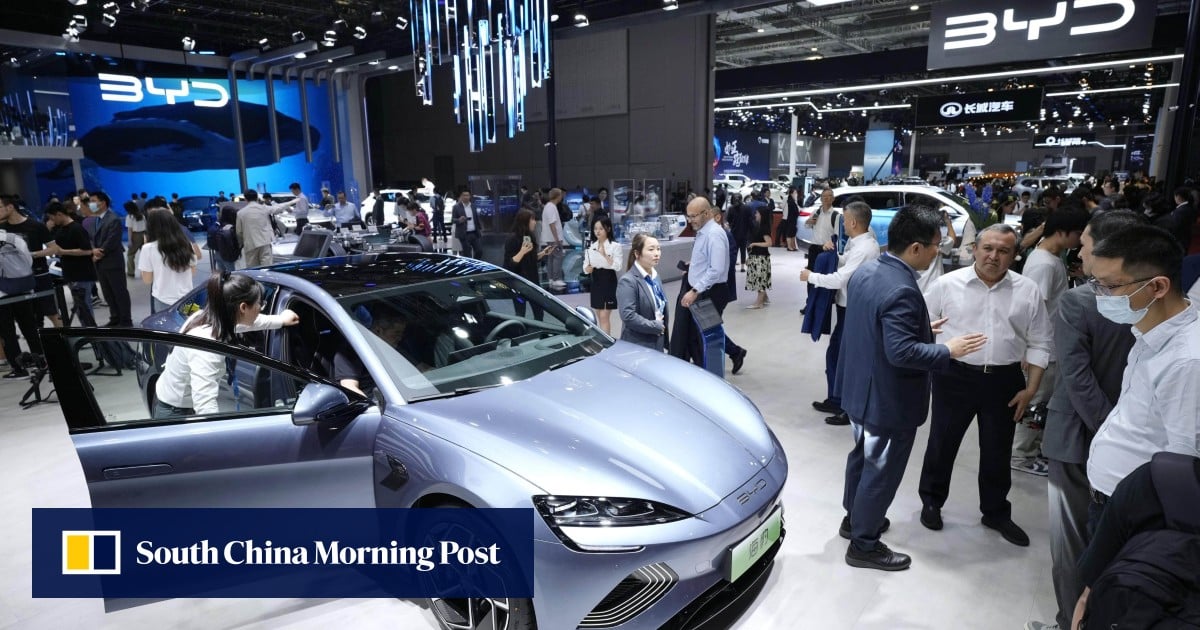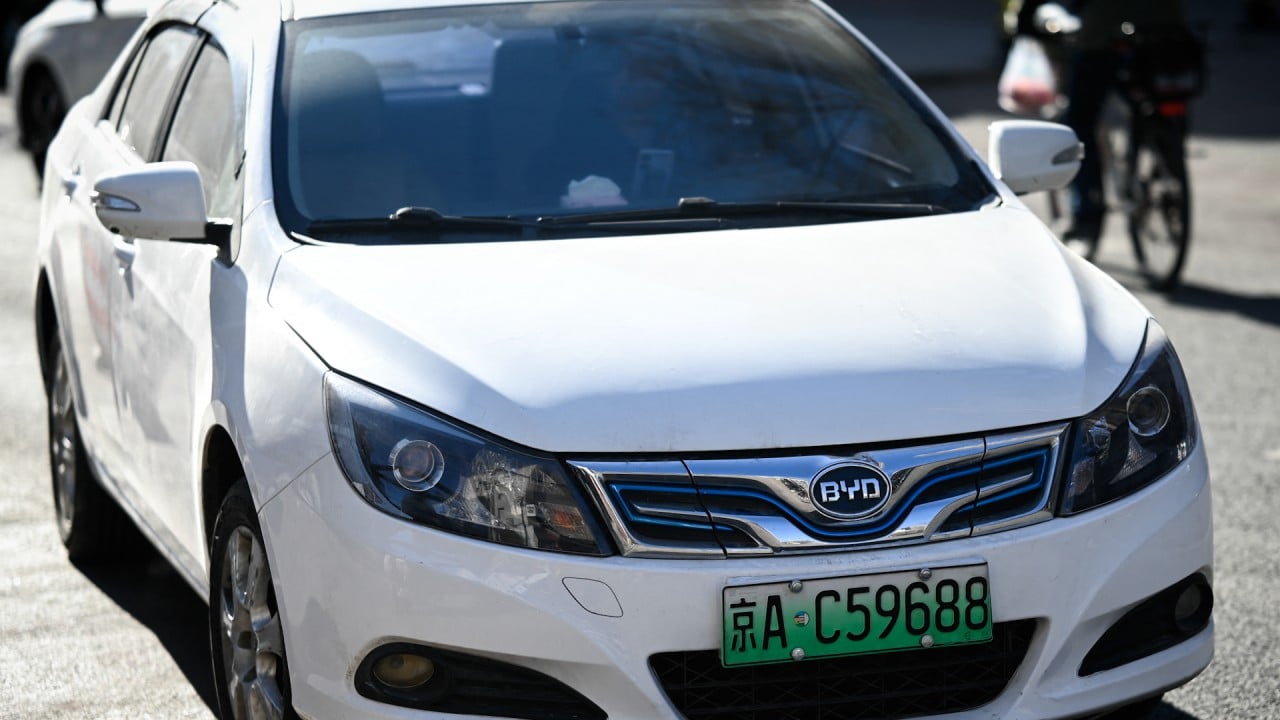
09 Apr New-energy vehicles to make up 50% of China’s new cars sales by 2030, Moody’s forecasts
The projection suggests a steady and continuous gain over the next six years as subsidies for car buyers and tax breaks for manufacturers and battery producers support demand, the rating company said in a report released on Monday.
NEVs comprise pure-electric cars, plug-in hybrid type and fuel-cell hydrogen-powered cars. China has the world’s largest automotive and electric-car market.
“Our estimates are underpinned by growing domestic demand for NEVs and investments in charging infrastructure, China’s cost advantages in NEV and battery manufacturers, and a raft of public policies that support the sector and its adjacent industries,” senior credit officer Gerwin Ho said in the report.
Moody’s forecast is less bullish than UBS Group’s estimate in 2021. The Swiss investment bank had projected that three in every five new vehicles sold in China’s domestic market would be powered by batteries by 2030.
Despite a hiccup in growth this year, the car industry remains a bright spot in the nation’s fading growth momentum. Manufacturers from BYD to Li Auto, Xpeng and Tesla are facing stiff competition among themselves amid a price war.
New EVs from Huawei, Xiaomi could renew price wars in China’s car market
New EVs from Huawei, Xiaomi could renew price wars in China’s car market
Moody’s expects the industry to account for 4.5 to 5 per cent of China’s nominal gross domestic product in 2030, compensating for weaker areas of the economy like the property sector.
Moody’s cautioned in the report that geopolitical risks could hamper China’s NEV value chain development as mainland car assemblers and component manufacturers face trade barriers in overseas export markets.
The European Commission is investigating Chinese-made electric vehicles for suspected state subsidies that disadvantage European producers. The probe could result in tariffs higher than the standard rate of 10 per cent in the European Union, Moody’s said.
UBS forecast in September that Chinese carmakers would control 33 per cent of the global market by 2030, nearly double the 17 per cent they garnered in 2022.


